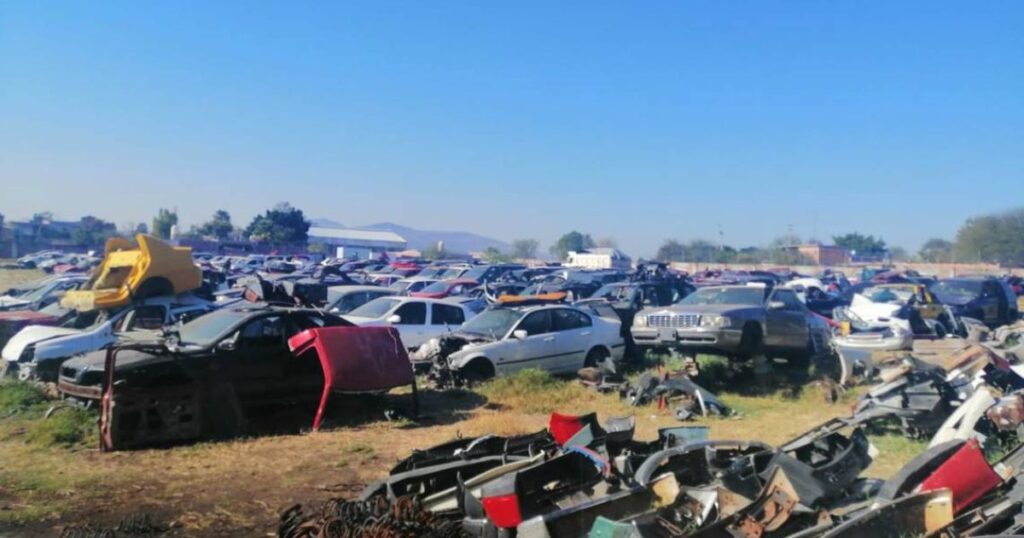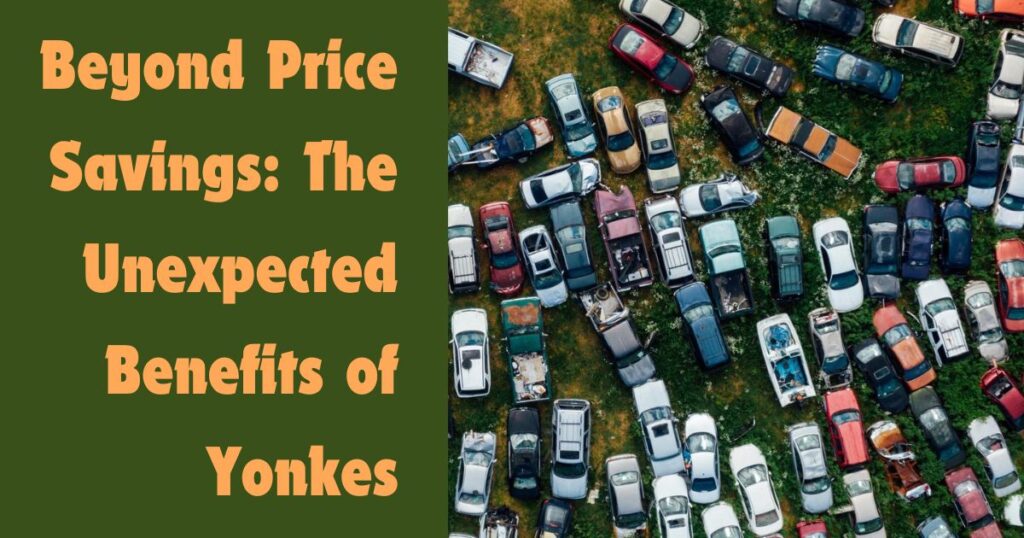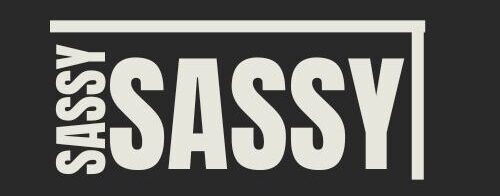In the vast landscape of automotive maintenance and repair, a hidden gem awaits discovery: the yonke. If you’ve ever found yourself frantically searching for “junkyard near me” or “used auto parts,” you’re in for a treat.
This guide will walk you through the world of yonkes, those treasure troves of automotive potential that are revolutionizing how we approach vehicle repairs and sustainability.
Yonkes, often overlooked by many car owners, are rapidly becoming a go-to solution for cost-effective and environmentally friendly auto parts. Whether you’re a seasoned mechanic or a DIY enthusiast, understanding the ins and outs of yonkes can save you time, money, and contribute to a more sustainable automotive industry.
Understanding Yonkes: A Sustainable and Cost-Effective Solution

Yonkes, derived from the Spanish word for junkyard, are more than just piles of rusty metal. They’re a testament to resourcefulness and a key player in the fight against waste. Unlike traditional junkyards, yonkes focus on salvaging and recycling usable parts, giving them new life in other vehicles.
The concept of yonkes has deep roots in automotive history, evolving from simple scrapyards to sophisticated recycling centers. Today’s yonkes are at the forefront of the circular economy, offering a sustainable alternative to the traditional linear model of production, consumption, and disposal.
The Environmental Impact
Yonkes are at the forefront of eco-friendly automotive practices. By promoting the reuse of parts, they reduce the demand for new parts production, minimize the energy consumed in manufacturing, and decrease the volume of automotive waste in landfills.
This sustainable approach to auto parts is becoming increasingly crucial as we face global environmental challenges.
Consider this: the average car contains about 30,000 parts. When a vehicle reaches the end of its life, many of these parts are still functional. Yonkes ensure that these components don’t go to waste. Instead, they’re carefully removed, cleaned, tested, and made available for reuse in other vehicles.
“Every part reused is a small victory for our planet.” – Environmental Automotive Association
This recycling process significantly reduces the carbon footprint associated with auto parts. Manufacturing new parts requires raw materials, energy, and often results in pollution. By choosing recycled parts from yonkes, consumers directly contribute to reducing these environmental impacts.
Economic Benefits for Consumers
The cost-effective nature of yonkes can’t be overstated. When comparing the prices of new parts to those found in yonkes, the savings are substantial. Let’s break it down with some concrete examples:
- Engines: A new engine can cost anywhere from $3,000 to $7,000 or more, depending on the make and model. At a yonke, you might find a compatible engine for $500 to $1,500, representing savings of up to 80%.
- Transmissions: New transmissions often range from $1,500 to $3,500. At a yonke, you could score one for $300 to $800, saving up to 75%.
- Body parts: A new door might set you back $500 to $1,500 from a dealership. At a yonke, you could find one for $100 to $300, again saving up to 80%.
These savings can make the difference between repairing a beloved vehicle and having to replace it entirely. For many car owners, especially those with older or classic vehicles, yonkes are a financial lifeline, allowing them to keep their cars on the road without breaking the bank.
Moreover, the economic benefits extend beyond individual consumers. Yonkes create jobs in the local community, from skilled mechanics who assess and remove parts to customer service representatives who help buyers find what they need. They also contribute to the local tax base, supporting community services and infrastructure.
Locating the Perfect Yonke: Strategies for a Successful Search
Finding the right yonke cerca de mí doesn’t have to be a wild goose chase. With the right approach, you can locate a treasure trove of automotive parts just around the corner. Here are some proven strategies to help you in your search:
- Leverage Online Resources: The internet is your friend when it comes to finding yonkes. Use search engines with terms like “yonke cerca de mí,” “salvage yards near me,” or “used auto parts in [your city].” Many yonkes now have an online presence, complete with inventories and pricing information.
- Explore Specialized Directories: Websites like Auto Parts Locator or Car-Part.com are dedicated to connecting consumers with auto parts suppliers, including yonkes. These platforms often allow you to search for specific parts, making your hunt more efficient.
- Tap into Local Knowledge: Don’t underestimate the power of word-of-mouth recommendations. Ask your mechanic if they know of any reputable yonkes in the area. Mechanics often have firsthand experience with local salvage yards and can provide valuable insights.
- Join Automotive Communities: Local automotive forums and social media groups can be goldmines of information. Fellow car enthusiasts often share their experiences with different yonkes, including tips on finding rare parts or negotiating prices.
When evaluating your options, consider these factors:
- Inventory Variety: A yonke with a diverse range of vehicles is more likely to have the part you need.
- Distance and Accessibility: While it might be tempting to travel far for a specific part, consider the time and fuel costs involved.
- Customer Reviews and Reputation: Look for feedback from other customers. A yonke with positive reviews is more likely to provide quality parts and good service.
- Pricing Transparency: Reputable yonkes are usually upfront about their pricing. Be wary of those that are reluctant to provide quotes.
As you conduct your search, be alert for red flags that might indicate a subpar yonke:
- Lack of Proper Licensing: Legitimate yonkes should be properly licensed by local authorities.
- Unwillingness to Provide Warranties: While not all used parts come with warranties, reputable yonkes often offer some form of guarantee on their parts.
- Poor Organization or Unsafe Conditions: A well-run yonke should be organized and maintain safe conditions for customers.
Read This Post: Mastering Översägt: A Complete Guide To Fluency
The Yonke Experience: What to Expect During Your Visit
Preparing for your yonke adventure can make all the difference between a frustrating experience and a successful parts hunt. Here’s what you need to know to make the most of your visit:
Essential Tools and Safety Gear
Before heading to the yonke, gather these essentials:
- Work gloves to protect your hands from sharp edges and grime
- Safety glasses to shield your eyes from debris
- Sturdy, closed-toe shoes for navigating potentially uneven terrain
- Basic hand tools like screwdrivers, pliers, and a socket set
Navigating the Yonke
Yonkes are typically organized by vehicle make and model. Most modern yonkes have a computerized inventory system, but don’t be afraid to ask for help. Staff are often fountains of knowledge about their inventory and can guide you to the parts you need.
When you arrive, take a moment to orient yourself. Many yonkes provide maps or have clear signage indicating different sections. If you’re looking for a specific part, it’s often more efficient to ask a staff member for directions rather than wandering aimlessly.
Interacting with Staff
Communication is key at a yonke. If you’re visiting a predominantly Spanish-speaking yonke, learning a few key phrases can go a long way:
- “¿Tiene partes para [your car make and model]?” (Do you have parts for [your car make and model]?)
- “¿Cuánto cuesta?” (How much does it cost?)
- “¿Puedo negociar el precio?” (Can I negotiate the price?)
Don’t be shy about asking questions. Yonke staff often have extensive knowledge about different car models and can offer valuable advice on compatibility and installation.
Finding and Extracting Parts
Once you’ve located the right vehicle, inspect the part thoroughly before deciding to purchase. Look for signs of wear, damage, or previous repairs. If possible, test the part to ensure it’s functioning correctly.
When removing the part, use the proper tools and techniques to avoid damage. If you’re unsure about how to remove a part, ask for assistance. Many yonkes have staff who can help with part removal, often for a small fee.
Remember to double-check compatibility with your vehicle. Bring your vehicle’s VIN number and any other relevant information to ensure you’re getting the right part.
Beyond Price Savings: The Unexpected Benefits of Yonkes

While the cost savings are a major draw, yonkes offer a range of benefits that extend far beyond your wallet. Let’s explore some of these unexpected advantages:
Educational Opportunities
Yonkes are veritable classrooms for anyone interested in automotive mechanics. By allowing customers to extract parts themselves, yonkes provide hands-on learning experiences that can’t be replicated in a traditional auto shop or classroom setting.
For DIY enthusiasts, this hands-on experience is invaluable. You get to see how different parts fit together, understand the intricacies of various systems, and gain practical knowledge that can save you money on future repairs.
Access to Rare and Discontinued Parts
For owners of classic or rare vehicles, yonkes can be a godsend. As manufacturers phase out production of parts for older models, finding replacements can become increasingly difficult. Yonkes often have a wide range of vehicles from different eras, making them excellent sources for hard-to-find components.
Case Study: The Rare Find Consider the story of John, a classic car restorer who had been searching for a specific carburetor for his 1967 Mustang for months. After visiting his local yonke, he not only found the part but also discovered a community of fellow enthusiasts who shared his passion. This illustrates how yonkes can become hubs for networking and knowledge-sharing among car aficionados.
Supporting Local Businesses
By choosing to shop at a yonke, you’re supporting a local business. Unlike large auto parts chains, yonkes are often family-owned operations that have deep roots in the community. Your patronage helps to keep these businesses alive, preserving jobs and contributing to the local economy.
Reducing Your Carbon Footprint
Every part you purchase from a yonke is one less new part that needs to be manufactured. This reduces demand for raw materials, cuts down on energy consumption in manufacturing, and decreases transportation emissions associated with shipping new parts. It’s a small step, but when multiplied across thousands of consumers, it can have a significant environmental impact.
Building Community Connections
Yonkes often foster a sense of community among car enthusiasts. Regular visitors often get to know the staff and other customers, sharing tips, stories, and advice. This can lead to valuable connections and friendships built around a shared interest in automobiles.
Conclusion
As we’ve explored, yonkes are more than just junkyards; they’re sustainable, cost-effective solutions for auto parts and a vital part of the circular economy. By choosing to search for “yonke cerca de mí,” you’re not just saving money – you’re contributing to a more sustainable automotive future.
Yonkes offer a unique blend of benefits: significant cost savings, environmental sustainability, educational opportunities, access to rare parts, and the chance to support local businesses. They represent a shift in how we think about automotive repair and maintenance, moving away from a throwaway culture towards one of reuse and recycling.
Whether you’re a DIY enthusiast, a professional mechanic, or simply looking to save on car repairs, yonkes offer a world of possibilities. They challenge us to think differently about what’s valuable and what’s disposable in the automotive world.
So next time you need a part, consider skipping the dealership and heading to your local yonke. You might just find exactly what you’re looking for – and more. You’ll be joining a community of savvy consumers who understand that sometimes, the best solutions are hidden in unexpected places.
As we move towards a more sustainable future, yonkes are poised to play an increasingly important role in the automotive industry. They represent a practical solution to the challenges of resource scarcity and environmental degradation, all while keeping our beloved vehicles on the road.

As an administrator, you have exclusive access to the core functionalities of our website. Here, you can manage users, content, and settings to ensure a seamless and engaging experience for all visitors. Whether you’re updating information, monitoring site activity, or customizing features, this dashboard empowers you to maintain the highest standards of quality and performance. Your decisions shape the future of our online presence—let’s make it exceptional together!
